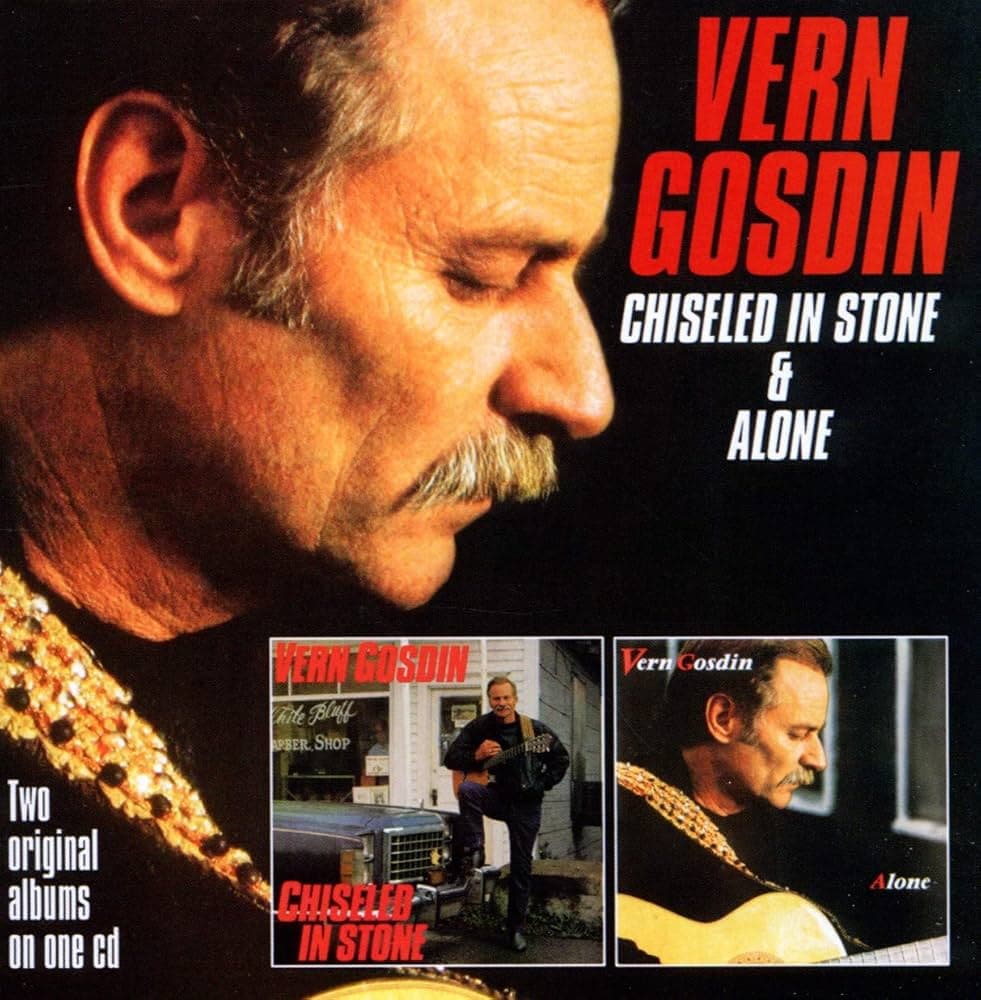
The Ultimate Resurrection: When Divine Grace Conquers Despair
To talk about Vern Gosdin is to speak of a voice that could embody heartache with a singular, unmatched power. He earned the moniker “The Voice” because when he sang, it wasn’t just music—it was the sound of a man who had lived through every sad song he ever recorded, his delivery stained with genuine experience. While his massive chart successes like “Chiseled in Stone” and “Set ‘Em Up Joe” defined his commercial peak by plumbing the depths of romantic despair, it is important to remember that for many country music singers, the sacred and the secular often occupy the same troubled landscape. It is in this spiritual realm that we find the immensely moving track, “Love Rolled Away the Stone.”
This song, which carries the solemn weight of a hymn, stands apart from Gosdin’s signature tear-in-your-beer ballads. “Love Rolled Away the Stone” was released late in his career, appearing on his 1995 compilation, The Gospel Album. This crucial piece of information immediately sets the song’s context: it was not a single aimed at country radio during his chart-topping years, and consequently, it did not register a position on the Billboard Hot Country Singles chart or any other major chart upon its release. Instead, it was an artistic offering, a testament to the bedrock of faith that often underpins the turbulent lives of artists like Gosdin. Released during a period when his recording output was less focused on the mainstream, the song speaks directly to a faithful audience, and for those who had been following his career through its many ups and downs, it offered a glimpse of his own spiritual journey and ultimate solace. It is a powerful reminder that even the deepest loneliness he sang about could, eventually, be met with divine comfort.
The meaning of “Love Rolled Away the Stone” is rooted directly in one of the most powerful images in Christian faith: the resurrection of Christ. The lyrics draw a parallel between the darkness and finality of the tomb and the desolate despair a person can feel when “left him there in pieces nailed him to the cross / They knew his heart would never beat again.” But the chorus delivers the glorious, sweeping reversal: “Then love, love rolled away the stone.” In Gosdin‘s delivery, this isn’t just a historical recounting; it’s an application of that immense, redemptive power to the personal trials of the listener. It symbolizes the spiritual resurrection that comes when faith—divine love—lifts a person out of their deepest sorrow, despair, or brokenness. It is the ultimate antidote to the “lonely” he explored in his greatest secular hits. The power of Gosdin‘s performance here is undeniable, his voice, usually so ragged with pain, is imbued with a soaring conviction that makes the religious message feel deeply, authentically personal. He manages to transform a theological concept into a beautiful, heartfelt piece of country music that speaks volumes about finding grace at the end of a long, hard road. For older listeners, it is a profoundly moving track, invoking the nostalgic familiarity of the old gospel hymns we grew up singing, delivered by the voice of a man who truly understood what it meant to be lost and then, finally, found.